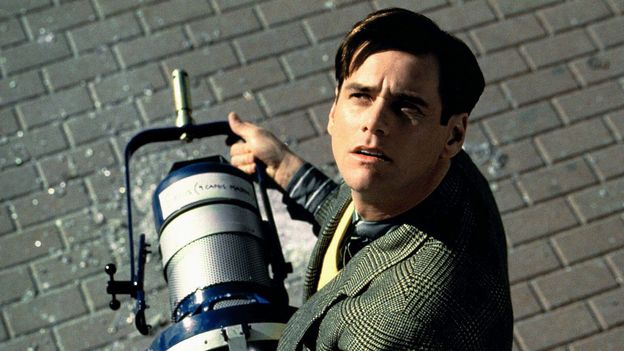The Truman Show also formulates how life can be lived for the entertainment of others. Now, we can all become Trumans thanks to widespread access to online platforms. The phenomenon of self-broadcasting has proliferated in our self-narrativising society; you can provide an unending soap opera stream of life to an audience online via Twitter, Instagram, Facebook, TikTok and many more. We can all, too, indulge in the much-derided Main Character Syndrome – a social media shorthand for those who narcissistically imagine themselves as the protagonist in their own life story, with the people around them as supporting characters.
“I think [the film] makes a strong case for this sense of the growing impossibility to separate entertainment and reality,” film programmer and writer Lilia Pavin-Franks tells BBC Culture. “Perhaps audiences have an affinity for reality TV because it gives a sense of relatability, but at its very core, reality TV still remains entertainment first and foremost.” Pavin-Franks highlights the complicated relationship between viewer and participants at the core of The Truman Show’s story and reality TV generally. How does the former view the latter – as empathetic subjects, enjoyably manipulated objects or both? Whatever the nature of the bond, certainly it can be a strong one: according to a 2016 study by market research agency OnePoll, “almost 1 in 5 of those surveyed have revealed they have grown attached to a reality star or character, with 1 in 10 admitting to becoming obsessed with a reality show”. This extracts the idea of a participant being perceived as a consumer product: it appears in Weir’s film in the way the audience buy into the character of Truman with Truman-themed merchandise. But there’s also something enraptured about the way they watch him, from their sofas, in bars, and even in the bathtub, 24 hours a day – a profound collective experience.
The Truman Show Syndrome
The Truman Show’s continued cultural resonance can be seen very concretely in the emergence of “Truman Show Syndrome”, a term coined in 2008 by psychiatrist Joel Gold and his academic brother Ian Gold to describe patients who believed they were being documented for the entertainment of others. Ian Gold, Associate Professor of Philosophy and Psychiatry at McGill University, tells BBC Culture that though the film “captured a salient moment in the history of technology, and resonated with the experience of many people”, it was not the singular cause of the delusion. Instead, the impact of the film intersected with mounting surveillance within Western culture. “Following 9/11, the Patriot Act made surveillance a salient feature of American culture, and that was probably an important contributor to the general anxiety around loss of privacy,” he adds.
One can then assume that the widespread access to mobiles and social media would only have elevated Truman-like anxieties further. That is certainly the belief of Dr Paolo Fusar-Poli, Professor and Chair of Preventive Psychiatry in the Department of Psychosis Studies at King’s College London, and co-author of research on the Truman Show Syndrome phenomenon published in the 2008 British Journal of Psychiatry. Dr Fusar-Poli tells BBC Culture: “Certainly, the profound recent digitisation and hyper-exposure of our lives on social media could trigger these [Truman-like] experiences.” Professor Gold furthers that “cultural realities are always intruding into psychotic experience,” and therefore the transition to a highly digital life could heighten paranoia surrounding surveillance.

